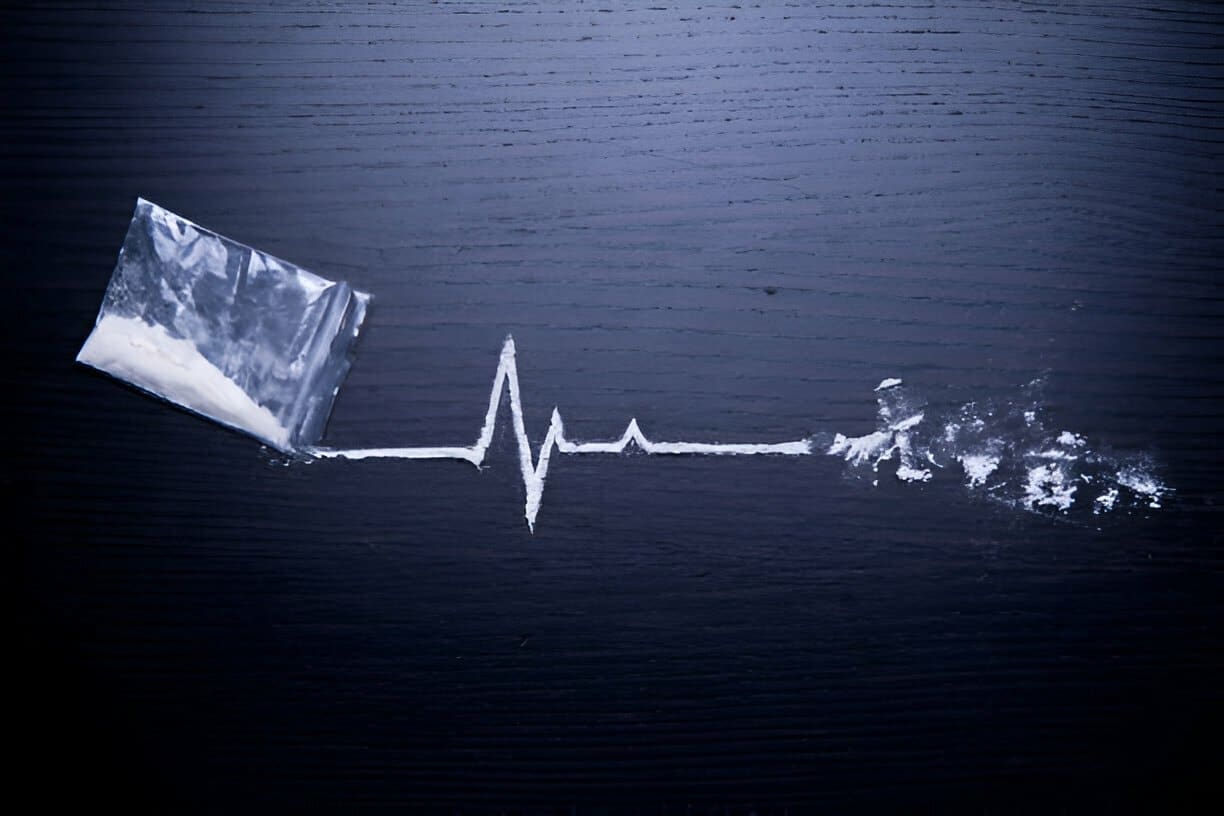Cocaine Overdose: Understanding the Dangers and Getting Help Safely

Cocaine, a stimulant known for its short-lived burst of energy and euphoria, hides a dark side. Behind the initial high lies a dangerous potential for overdose, with severe health consequences and even death. This article delves into the world of cocaine overdose, equipping you with the knowledge to recognize the signs, understand the dangers, and most importantly, take the right steps to get help in an emergency.
What is a Cocaine Overdose and How Does it Happen?
Think of your body as a finely tuned machine. Cocaine throws a wrench into this system. It disrupts the delicate balance within your central nervous system, specifically targeting areas that control heart rate, blood pressure, and breathing.
An overdose occurs when someone takes too much cocaine, overwhelming their body’s ability to handle the drug’s effects. This excessive stimulation puts immense strain on vital organs, leading to a cascade of potentially life-threatening problems.
The Devastating Impact of Cocaine on Your Body
Cocaine’s effects go far beyond a temporary high. Here’s how it wreaks havoc on your system:
- Heart Attack: The rapid heart rate caused by cocaine forces your heart to work much harder than usual. This can damage the heart muscle and increase the risk of a heart attack, where blood flow to a part of the heart is blocked.
- Stroke: Cocaine constricts blood vessels, reducing blood flow to the brain. This can lead to a stroke, where a blood clot blocks an artery or bleeding occurs in the brain, causing brain damage.
- Seizures: Cocaine disrupts the electrical activity in the brain, sometimes triggering seizures, which are uncontrolled bursts of electrical activity causing temporary loss of consciousness and muscle contractions.
- Respiratory Failure: Cocaine can interfere with your breathing patterns, making it difficult to breathe normally. In severe cases, it can lead to respiratory failure, where your body can’t take in enough oxygen or remove enough carbon dioxide.
- Coma: A severe overdose can lead to a coma, a state of prolonged unconsciousness from which the person may not recover.
Recognizing the Signs of a Cocaine Overdose: When to Act Fast
Early intervention is crucial in a cocaine overdose situation. Here are some warning signs to watch out for:
- Extreme Agitation or Restlessness: The person may seem overly jittery, unable to sit still, and exhibit frantic behaviour.
- Confusion or Strange Behaviour: Confusion, disorientation, or even hallucinations can indicate a dangerous level of intoxication.
- Rapid Heart Rate or Chest Pain: A racing heart or tightness in the chest can signal potential heart problems.
- Difficulty Breathing or Shortness of Breath: Look for signs of laboured breathing, rapid shallow breaths, or gasping for air.
- Seizures or Tremors: Uncontrolled muscle movements, jerking, or full-blown seizures can be a sign of a severe overdose.
- Extreme Body Temperature: Cocaine can cause either a very high or very low body temperature, both of which are dangerous.
- Nausea and Vomiting: While these are common side effects of cocaine use, persistent vomiting can indicate a more serious issue.
- Loss of Consciousness: If the person becomes unresponsive and cannot be awakened, it’s a critical emergency.
- Dilated Pupils: Enlarged pupils are a physical sign of cocaine intoxication, and in an overdose situation, they may not react to light.
Taking Action in a Cocaine Overdose Emergency: Every Second Counts
If you suspect someone is experiencing a cocaine overdose, don’t hesitate – call 999 immediately. Here’s what you can do while waiting for help:
- Stay Calm: Panic can cloud your judgement. Take a deep breath and focus on providing assistance.
- Check for Breathing: If the person is not breathing, begin CPR (cardiopulmonary resuscitation) – chest compressions and rescue breaths – immediately.
- Position the Person: Lay them on their side to keep their airway open and prevent choking.
- Loosen Tight Clothing: This helps with easier breathing and circulation.
- Stay with the Person: Don’t leave them alone until help arrives.
- Don’t Give Anything to Eat or Drink: This can worsen the situation.
- Avoid Judgement: The person needs medical attention, not blame.
Seeking Help for Cocaine Use: Breaking the Cycle of Addiction
Cocaine addiction is a serious problem, but there is hope. Many effective treatment options are available to help people overcome cocaine dependence and reclaim their lives. Remember, there’s no shame in seeking help. Here are some resources in the UK that can guide you:
- Frank: This free and confidential service offers advice and support about drugs. Call 0300 123 660 for more information
- National Drugs Helpline: Provides a free helpline with information and support for people affected by drugs. Call 0800 685 2333.
- NHS Choices: The NHS website offers information about cocaine addiction and treatment options https://www.nhsinform.scot/healthy-living/drugs-and-drug-use/common-drugs/cocaine/.
The Road to Recovery: Treatment Options for Cocaine Addiction
There’s no one-size-fits-all approach to cocaine addiction treatment. The best course of action will depend on the individual’s needs and circumstances. Here are some common treatment options:
- Detoxification: This initial stage involves safely managing withdrawal symptoms as the body rids itself of cocaine. Medication and medical supervision can be crucial during this phase.
- Behavioural Therapy: Techniques like cognitive behavioural therapy (CBT) help individuals identify and change negative thought patterns and behaviours that contribute to addiction.
- Support Groups: Connecting with others who understand the challenges of addiction can provide invaluable support, encouragement, and a sense of belonging.
- Medication-Assisted Treatment (MAT): In some cases, medications can help manage cravings and reduce the risk of relapse.
Preventing a Cocaine Overdose: Knowledge is Power
Here are some crucial steps to reduce the risk of a cocaine overdose:
- Never Use Cocaine Alone: Having someone present can alert emergency services if needed.
- Start with a Low Dose: If you choose to use cocaine, begin with a very small amount and wait to see how your body reacts before taking more.
- Be Aware of the Risks: Educate yourself about the dangers of cocaine overdose and the signs to watch out for.
- Avoid Mixing Cocaine with Other Drugs: Combining cocaine with other substances, especially alcohol or opioids, significantly increases the risk of overdose.
- Seek Help if You’re Struggling: Don’t wait until a crisis hits. If you’re struggling with cocaine use, reach out for help. There is no shame in seeking support.
Living a Life Free from Cocaine
Recovery from cocaine addiction is a journey, and there will be challenges along the way. However, with the right support system, treatment plan, and unwavering commitment, it is possible to overcome addiction and live a healthy, fulfilling life. Remember, you’re not alone in this battle. There are people who care and resources available to help you win.
Here are some additional resources that might be helpful:
- Talk to Frank: Offers a website with information and resources about drugs https://www.talktofrank.com/.
- Rehab 4 Addiction: Provides information about addiction treatment centres in the UK https://www.rehab4addiction.co.uk/.
- Mind: A mental health charity offering information and support on addiction https://www.mind.org.uk/information-support/types-of-mental-health-problems/recreational-drugs-alcohol-and-addiction/drug-and-alcohol-addiction-useful-contacts/.
We hope this information empowers you to make informed choices and provides a roadmap to getting help if needed. Remember, your life is valuable, and there is support available to help you overcome cocaine addiction.
Official Data Related To Deaths With Cocaine or Cocaine Overdose
In 2023, cocaine-related deaths in the UK continued to be a significant concern. The most recent data from the Office for National Statistics (ONS) reported that in 2022, there were 840 deaths involving cocaine, which was an 8.1% increase compared to 2020. This rise highlights the ongoing issue of drug misuse and its fatal consequences in the UK.
Overall, drug poisoning deaths reached 4,907 in 2022, with drug misuse accounting for 3,127 of these deaths. The highest rates of drug misuse deaths were observed in individuals aged 40 to 49 years, often referred to as “Generation X,” who have consistently had the highest rates of drug misuse deaths over the past 25 years. The North East of England continues to have the highest rate of drug-poisoning deaths among all regions.
For more detailed and up-to-date information, you can refer to the Office for National Statistics reports on drug misuse and poisoning deaths.
Help for Cocaine Addiction: Private and Government Institutions
Cocaine addiction is a serious and challenging condition, but there are numerous private and government institutions dedicated to providing support and treatment for those affected. Here are some of the key organisations offering help:
Government Institutions
NHS (National Health Service) The NHS provides a range of services for those struggling with cocaine addiction. This includes free, confidential advice and treatment options such as counselling, therapy, and rehabilitation programs. The NHS also offers resources for families and friends of those affected by addiction. For more information, visit the NHS website.
Public Health England (PHE) Public Health England works to improve the nation’s health and wellbeing, focusing on reducing drug misuse and supporting recovery. PHE offers guidance on local treatment services and supports initiatives to prevent drug-related harm. Learn more about their services on the PHE website.
FRANK FRANK is a government-funded service that provides confidential advice on drugs and alcohol. They offer information about the effects of cocaine, advice on dealing with addiction, and details of local services that can help. Visit Talk to FRANK for more information.
Private Rehab Centres
Private rehab centres offer specialised and personalised treatment programs for cocaine addiction. These centres provide a range of services, including:
- Detoxification Programs Private rehab centres typically offer medically supervised detoxification to help individuals safely withdraw from cocaine. This process is crucial for managing withdrawal symptoms and preparing for long-term treatment.
- Inpatient and Outpatient Services Many private rehab centres offer both inpatient and outpatient programs. Inpatient services provide a structured environment with 24/7 care, which can be beneficial for those with severe addiction. Outpatient programs offer flexibility for individuals who need to maintain their daily responsibilities while receiving treatment.
- Therapy and Counseling Therapy is a cornerstone of addiction treatment. Private rehab centres offer various therapeutic approaches, including cognitive-behavioural therapy (CBT), individual counselling, group therapy, and family therapy. These therapies help address the underlying causes of addiction and develop coping strategies for maintaining sobriety.
- Holistic Treatments Many private rehab centres incorporate holistic treatments into their programs, such as yoga, meditation, art therapy, and physical fitness. These treatments aim to heal the mind, body, and spirit, supporting overall well-being and recovery.
Conclusion
Cocaine overdose is a serious threat in the UK. Recognizing the signs, understanding the dangers, and knowing how to react in an emergency are crucial. However, addressing this issue requires a multi-pronged approach – from public awareness campaigns to increased access to treatment and harm reduction strategies. By working together, we can create a safer environment for everyone.




